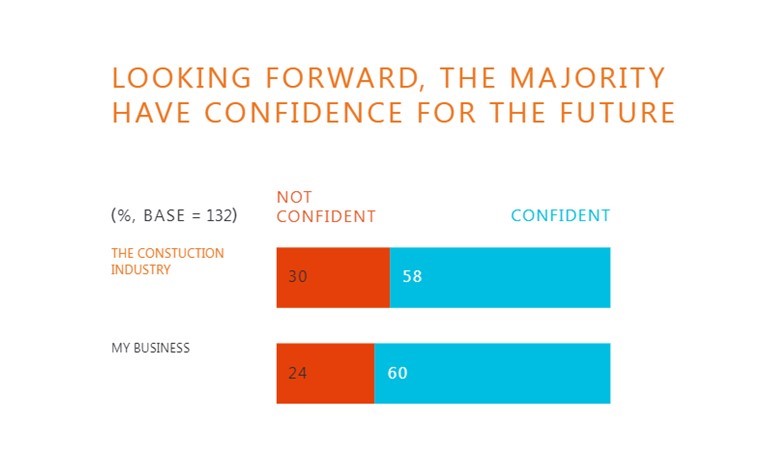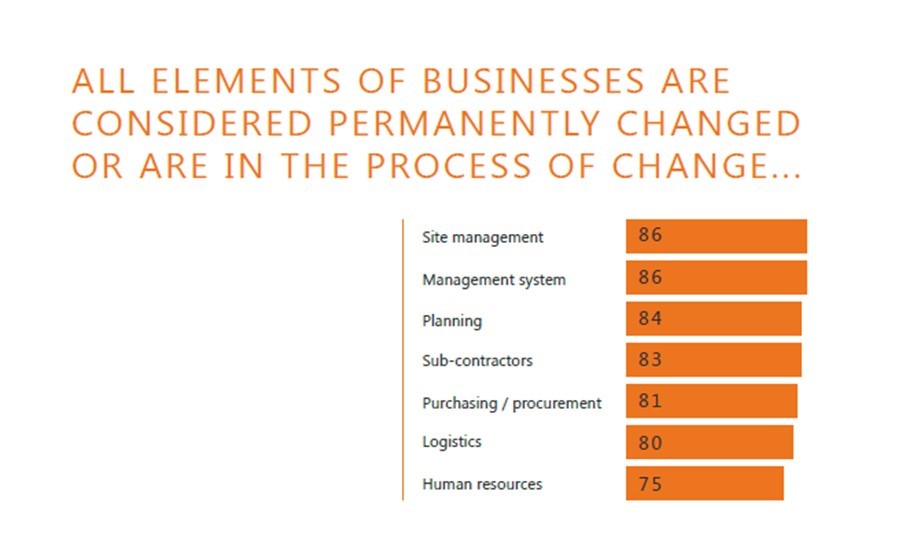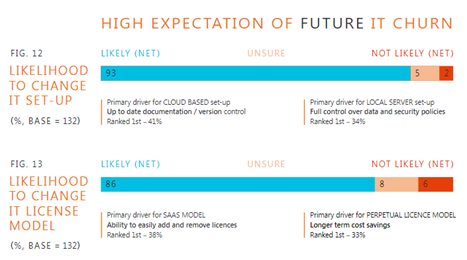Building for the Future
The challenges facing all industries are ever-changing. The future of construction in the UK will likely be shaped by technological advances, changing consumer preferences, and economic and political factors.
As the COVID-19 pandemic and Brexit shock start to recede, the ongoing war in Ukraine, the associated fuel crisis, and a looming recession are all emergencies for the industry to confront now. Like others, the construction industry is experiencing rapid change through digital technology. Having shown resilience to manage and adapt to previous challenges, the construction industry needs to display similar adaptability to future-proof itself against these new challenges and ones that remain to be seen in the coming years.
Looking forward with confidence
Recent reports show business confidence is falling across the UK as challenging economic conditions and political turmoil result in unsettled financial markets. While stability has been restored to some extent, recent events are likely to result in higher interest rates, taxes and government borrowing, and lower government spending.
This has affected business sentiment; however, our survey finds that the construction industry is predominately optimistic about the future.

The process of change
The construction industry is continually adapting to changes. Not just in technology but in ever-changing regulations and often volatile market conditions. How the industry reacts to these changes can vary, but construction companies must be flexible and adaptable to remain competitive.
According to the data in our report, since the pandemic, all businesses consider themselves to be permanently changed or in the process of change, with site management being one of the most varied in recent years.
The COVID-19 pandemic had a significant impact on the industry in the UK, requiring construction site managers to be flexible and adaptable to ensure that their sites remain safe and compliant with regulations.
Due to technological advances, construction site management has changed significantly, making it easier to plan and coordinate complex projects. Fundamental changes have encompassed increased use of project management software, improved communication, enhanced safety, greater sustainability, increased use of modular construction and more use of virtual and augmented reality.

Decentralisation and communication – the new challenges
There are several challenges facing the construction industry today. Still, the traditional challenges such as health and safety or risk management have given way in recent years to the new challenges of decentralisation of workers and digital transformation.
Managing decentralised workers can present challenges. With remote or hybrid working becoming the norm, communicating, and coordinating with workers can be difficult. As well as providing support and resources to decentralised workers can also be more challenging to ensure that company policies and procedures are being complied with. These challenges can be quickly addressed through careful planning, clear communication, and relevant tools and technologies.
However, the challenge of integrating new and emerging technologies faces many companies in the industry. While these technologies have the potential to improve efficiency and productivity, they can also require a significant investment of time and resources to implement and maintain.
It is a continuous effort by industry professionals to ensure they come up with solutions and strategies to tackle these challenges to ensure the construction industry is viable and sustainable in the future.
Is digital transformation the solution?
Digital transformation has already had a significant impact on the UK construction industry. It has enabled companies to use technology to improve the efficiency and productivity of their operations. Building Information Modelling (BIM), drones for site surveys, the adoption of 3D printing and virtual reality for training and design visualisation have all impacted the industry.
Workforce shortages could be addressed through digital transformation. Automating repetitive and time-consuming tasks can free employees to focus on more complex and higher-value work, helping organisations to be more productive and efficient, even with a reduced workforce.
The integration of digital technology into all areas of business can result in fundamental changes to how the company operates and can be a solution to a wide range of challenges facing the organisation, as it allows them to work more efficiently.

Readiness for digital
In general, the construction industry faces several challenges and opportunities as it moves into the future, including the impact of technology. Successful construction companies in the future will be those that can adapt to change and find ways to address the challenges faced.
Whilst most businesses claim a five-year plan to alter their IT setups, most of these still have some way to go before they are entirely prepared for digital transformation. Fewer than half of businesses believe that they are completely ready for digital transformation.
Cloud in Construction
As the use of cloud technology has become increasingly widespread in many industries, more and more construction companies are adopting cloud-based solutions. These offer several benefits, such as increased collaboration and flexibility, lower upfront costs and reduced maintenance and upgrade costs. Cloud-based solutions make it easier to access and manage project data from anywhere, which can be particularly useful for companies that have employees working on-site.
The extent to which construction companies are adopting cloud-based solutions depends on several factors, such as the size of the company and the needs of the business. However, our survey shows that nearly all respondents flagged IT transformation as something they would likely change in the future, with the majority in favour of moving to cloud hosting and a Software-as-a-Service (SaaS) model.

Conclusion
Following a period of uncertainty and disruption and facing the challenges that the pandemic presented head-on, the industry has now witnessed the benefits of digital transformation, and there is more willingness to embrace emerging technologies.
There are many barriers to the successful adoption and implementation of software as a service, such as resistance to change, data privacy and security concerns, and lack of customisation, but the most significant barrier is integration challenges. Integrating SaaS solutions with existing systems and processes can be difficult and time-consuming. However, a move to SaaS can also positively impact cash flow, as it allows companies to pay for software on a subscription basis and scale usage as per need while providing automatic updates and upgrades.
Digital transformation has the potential to revolutionise the construction industry, improving the way that projects are planned, designed, and built. However, digital transformation is not a one-size-fits-all solution, and to be successful, it requires careful planning and execution.







